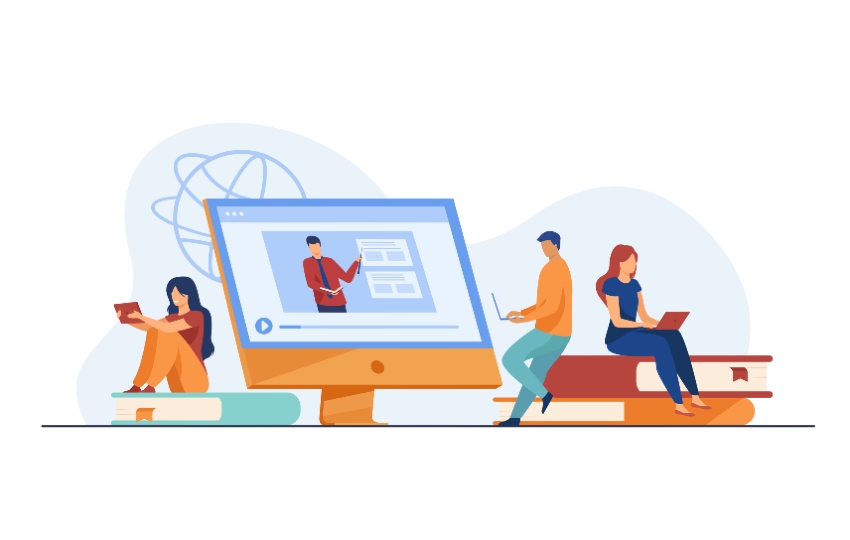Let’s discover the advantages of MOOCs. MOOCs stand for Massive Open Online Courses instead of the traditional learning process of physical attendance to a class. Consequently, this type of learning carries certain advantages associated with flexible and remote education.
What are MOOCs?
They were first introduced in 2008, but their maturity and popularity came after 2012. MOOCs are online courses with unlimited open participation and access through the internet. They involve filmed lectures, reading materials, and interactive activities with other students-users through forums. At the end of each lesson, there are quizzes or assignments that students need to complete to progress in the course.
Initially, the MOOCs emphasized on the “Open” aspect of their names with content free of licensing. Then, slowly appeared closed licenses and various courses with the option of registering for a fee. These courses typically provided a certification upon successful completion of the class while maintaining a good grade in the quizzes and assignments throughout the course. However, the open character of those courses remains, and anyone can enroll and learn for free.
The increased popularity of MOOCs also led to the emergence of many MOOC providers like Coursera, Udacity, and edX. Along with these blooming providers, many Universities were fascinated by MOOCs’ potential and joined the trend. Many of these pioneer Universities are top-tier schools like Stanford, Harvard, and MIT. They still provide quality courses accessible to.
Why Should Someone Enroll in MOOCs?
Furthermore, the advantages of MOOCs are plenty. First, it allows the democratization of Higher Education globally by allowing everyone with an internet connection to enroll and learn. Some students cannot afford to go to college, but there is also the aspect of quality. Nearly everyone with a fundamental digital literacy can enroll in courses from top tier Universities and be students to some of the most inspiring professors.
Besides, one of the main advantages of MOOCs is flexibility. Students can access them to at any time during the day and personalize their learning at their own pace. Most importantly, they don’t have to build their daily schedules around courses, as it happens when going to college. Students can relatively fit MOOCs easily in their day and go about their daily schedule.
Finally, MOOCs permit online collaboration between the students and the faculty. A MOOC is a space of learners sharing the same interests; therefore, it enhances their collaboration. This is the opposite of traditional college courses, where students are forced to enroll in classes they don’t like. Online participation with like-minded co-learners from different parts of the world and different experiences creates an ideal platform for learning and developing their skills.

